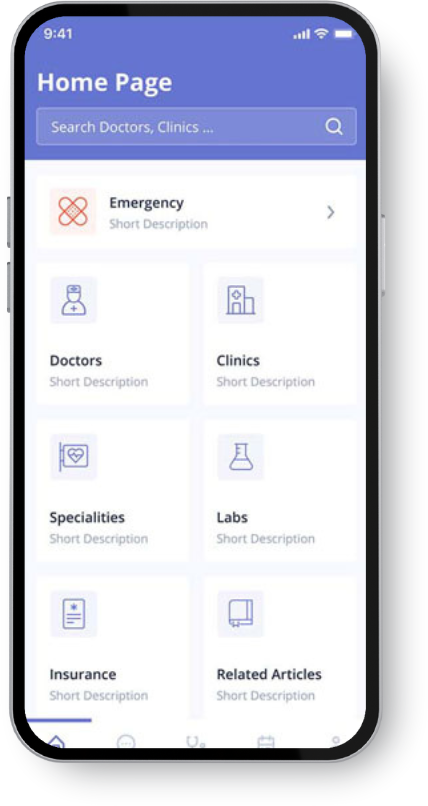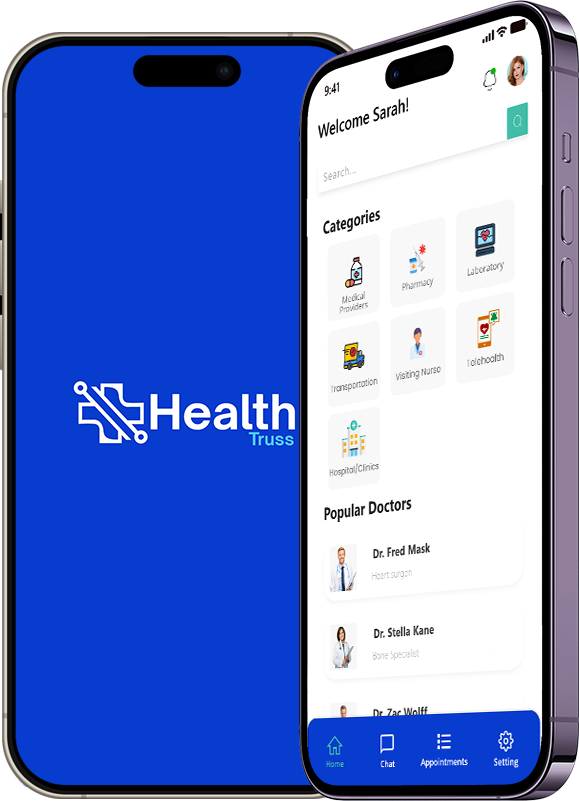The Future of Healthcare: Why Clinics Required a Mobile Application Today
As the medical care landscape continues to evolve, clinics face placing pressure to adjust to patient assumptions for higher comfort and ease of access. The integration of mobile applications can work as an essential strategy for improving patient engagement and improving operations. By leveraging modern technology to improve communication and provide vital solutions, facilities not only deal with present needs however additionally place themselves for future success. The effects of this shift expand beyond mere functional effectiveness; they could redefine client relationships and care delivery in profound means. What might this transformation appearance like for both people and facilities?
Altering Client Expectations
As the landscape of healthcare evolves, individual assumptions are undergoing a substantial improvement. Today's patients are significantly seeking comfort, access, and customized care.
Moreover, clients are coming to be much more notified and empowered, usually investigating therapies and conditions on the internet prior to assessments. This increased awareness is paired with a demand for openness in health care processes, consisting of cost price quotes and treatment alternatives. As a result, suppliers are forced to adjust by adopting digital devices that improve the client experience.
The assumption for prompt and efficient communication has actually never been higher, with numerous patients taking into consideration responsiveness an important component of quality treatment. mobile app for clinics. In this developing landscape, medical care companies must acknowledge these altering expectations and utilize mobile applications to foster a more patient-centric method, making sure that they not just fulfill however surpass the standards set by today's enlightened consumers
Enhancing Client Interaction

Mobile applications assist in communication between patients and health care suppliers, making it possible for real-time visit organizing, suggestions for drug adherence, and direct messaging functions. These functionalities not only improve comfort yet likewise build a sense of accountability amongst people. Mobile applications can use academic web content tailored to specific requirements, helping clients better recognize their problems and treatment alternatives.
The integration of gamification elements within healthcare apps can additionally inspire patients to engage in healthy habits, enhancing favorable lifestyle adjustments. Eventually, boosting individual involvement through mobile applications leads to improved wellness outcomes, greater patient complete satisfaction, and a much more joint medical care experience.
Streamlining Center Workflow
Simplifying clinic operations is essential for enhancing process effectiveness and optimizing client care. The implementation of mobile applications can substantially lower management problems, enabling doctor to focus extra on patient interactions. By automating appointment scheduling, patient check-ins, and billing processes, centers can lessen wait times and boost total functional effectiveness.
Mobile applications also facilitate real-time access to patient records, enabling healthcare professionals to make enlightened choices swiftly. This immediacy not only improves the top quality of care but additionally reduces the chance of mistakes related to lost or outdated information. Furthermore, leveraging mobile technology supports an extra orderly technique to managing patient follow-ups and treatment strategies, making sure that no crucial actions are neglected.
This allows for timely replenishment and assists stay clear of interruptions in individual treatment due to equip scarcities. By integrating these capabilities into their everyday procedures, facilities can create a much more reliable and cohesive atmosphere, inevitably leading to enhanced patient results and fulfillment.
Improving Interaction Networks
Efficient communication is frequently helpful site cited as a foundation of top quality medical care shipment. In today's busy clinical environment, mobile applications can dramatically boost interaction channels in between centers, individuals, and medical care companies. By incorporating mobile applications into their procedures, clinics can assist in real-time communications, making certain that patients get timely information concerning their consultations, test outcomes, and therapy strategies.
Mobile apps also empower people to connect straight with their medical care groups with safe messaging functions. This direct line of communication cultivates a sense of involvement and permits for immediate information of problems, which can bring about far better adherence to treatment protocols. Press alerts can advise individuals of upcoming consultations or medicine timetables, minimizing no-show rates and enhancing total health and wellness end results.

Staying Competitive in Medical Care
In a swiftly advancing healthcare landscape, companies must focus on development and flexibility to maintain a competitive side. The integration of mobile applications view it into health care solutions is no more optional; it is necessary for facilities aiming to boost client interaction, simplify operations, and improve general solution distribution.
As patients significantly rely upon electronic platforms for health monitoring, clinics that fail to adopt mobile modern technology threat falling back. A properly designed mobile app can provide features such as appointment organizing, telemedicine appointments, and accessibility to clinical records, giving patients with comfort and cultivating loyalty.

Rivals are also purchasing mobile options, so remaining ahead requires continual enhancement and staying informed about technical advancements. Clinics should not only carry out mobile applications however likewise take part in regular updates and improvements. Eventually, the effective combination of mobile modern technology will certainly identify forward-thinking medical care companies and established the criteria for patient-centric treatment in a digital globe.
Conclusion
In verdict, the combination of mobile applications in clinics is imperative to attend to the developing landscape of patient assumptions. By enhancing individual involvement, enhancing procedures, and boosting communication networks, facilities can dramatically increase wellness results. Additionally, the adoption of mobile modern technology positions centers to remain affordable in a significantly digital medical care atmosphere. Eventually, the strategic execution of mobile applications represents a critical step toward supplying personalized and easily accessible health care, thus fulfilling the needs of today's equipped patients.
Inevitably, enhancing individual interaction with mobile applications leads to enhanced wellness results, higher client complete satisfaction, and an extra collaborative health care experience.Mobile applications likewise assist in real-time access to client records, enabling medical care specialists to make informed choices quickly. In today's fast-paced clinical environment, mobile applications can substantially boost communication networks in between centers, people, and healthcare providers.Mobile applications additionally equip patients to interact directly with their medical care groups through safe messaging features. Ultimately, the critical execution of mobile applications represents an important step towards providing look at this web-site customized and accessible medical care, consequently fulfilling the needs of today's empowered individuals.
Comments on “The Impact of a Mobile App for Clinics on Workflow Performance and Patient Contentment”